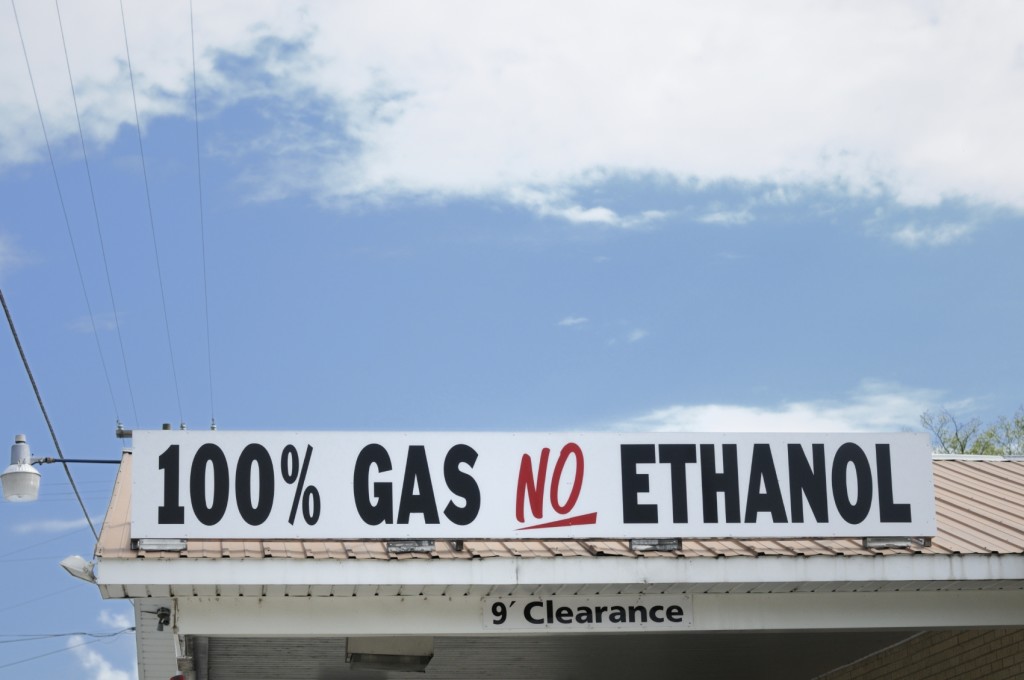Throughout the presidential campaign thus far, several candidates have made energy issues key aspects of their platforms. In Iowa, the Renewable Fuel Standard (RFS) has been of particular import due to the heavy influence of the ethanol lobby. One group, America’s Renewable Future, is looking to pressure candidates to support its position by releasing a scorecard tracking where each of the candidates stand on the RFS. Yet ARF has it backwards: to protect American families, the RFS should be fully repealed.
ARF’s message to the candidates is simple: support the RFS, or lose Iowa. The RFS is a federal policy that mandates ethanol in gasoline and raises gas prices. It is no coincidence that the group is heavily backed by ethanol lobbying groups who stand to gain from the status quo. The Iowa Corn Growers Association, the Iowa Renewable Fuels Association, and Growth Energy are among the groups that finance this latest pressure campaign.
ARF’s scorecard simply rates candidates on their positions on the RFS, giving those willing to keep the mandate a “good rating,” those with unclear records a “needs work” rating, and those indicating they will get rid of the RFS and protect American families and businesses a “bad rating.”
Of course, ARF is interested in protecting the RFS mandate, which guarantees a market for corn ethanol. In reality, the RFS is bad policy that increases costs for all Americans: the energy-adjusted average price of ethanol is nearly 40 cents more than standard gasoline. While the RFS was initially mandated to address America’s dependence on foreign oil and declining domestic oil production, the U.S. has since become a global leader in energy production. Thanks to hydraulic fracturing and horizontal drilling, oil and natural gas production increased by 3.1 million barrels per day and roughly 4.7 trillion cubic feet, respectively, since 2010. And that was accomplished with no mandates from Washington.
Candidates who support the RFS should be held accountable for supporting an outdated, harmful policy. For example, Gov. Christie has struggled to make sense of the RFS and seems to blindly support the mandate without fully understanding its impacts. Even worse, Hillary Clinton’s ethanol plan will not only ramp up subsidies for ethanol, but also increase the mandate for the production of costly cellulosic and advanced biofuels, of which production has failed to materialize even with generous government handouts.
Candidates should oppose the RFS and support free market energy policies that protect American families. The American Energy Alliance’s 2016 Presidential Candidates Energy Scorecard tracks each candidate’s position on energy issues, including the RFS, so voters can hold the candidates accountable. Unlike ARF, the AEA scorecard provides extensive quotes, vote histories, and policy platforms for each candidate, allowing voters to make informed decisions on energy in the 2016 presidential race.
Rather than rely on ARF’s scorecard, tailored to the special interests of entrenched lobbyists, see where candidates stand on a wide variety of energy issues by visiting the AEA 2016 Presidential Candidates Energy Scorecard.
